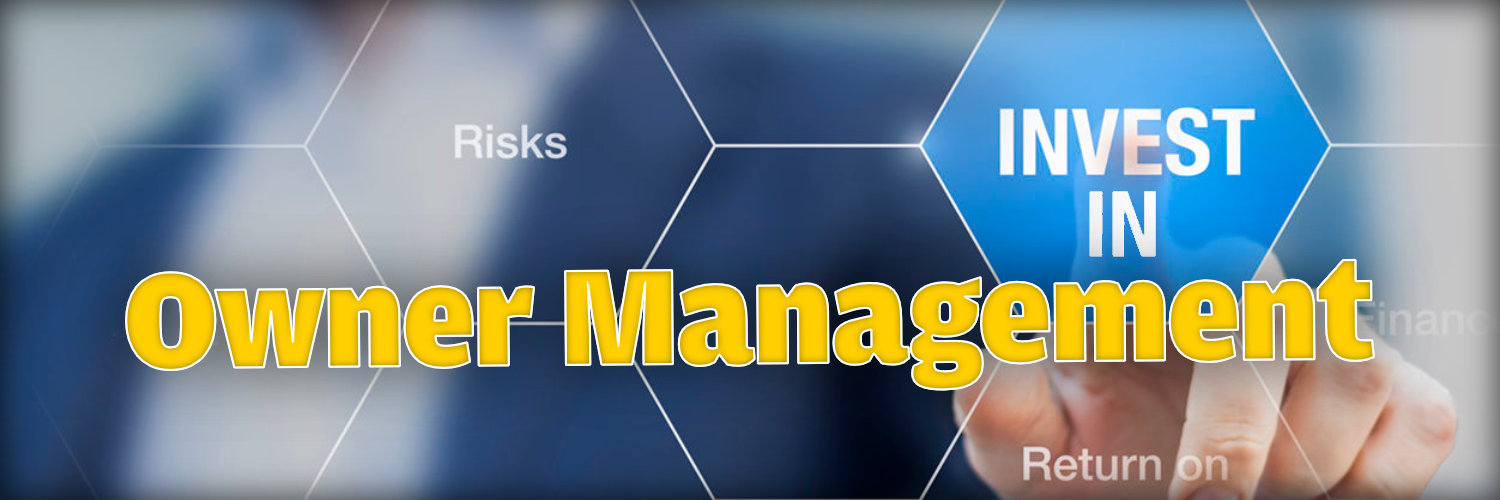
Shelf Life
My intention is to hold stocks forever, but the harsh reality is every stock has different shelf life.
The smaller the company the greater the emphasis investors should place on selecting the right founders and CEO’s. I try to find and invest in intelligent fanatics early.

I’m a full time private microcap investor. The smaller the company the greater the emphasis investors should place on selecting the right founders and CEO’s. I try to find and invest in intelligent fanatics early.
What is an intelligent fanatic?
Intelligent Fanatics are the world’s greatest business builders. They create companies and organizations that dominate and stand the test of time. Charlie Munger was the first person to use the term Intelligent Fanatic. He described them as possessing business talents that allow them to do things that ordinary skilled mortals can’t.
Sean Iddings and I have studied over 100 intelligent fanatics that have built dominant public and private businesses and that operated in different industries, continents, and time periods. Perhaps the most fascinating thing we encountered was even though they were all quite different, their business philosophies were relatively similar. There was a blueprint for success. Intelligent fanatics possess similar attributes, characteristics, and behaviors. I would like to discuss one of these behaviors with you today.
Our research uncovered that intelligent fanatics are owners, not caretakers.
Specifically, this was reflected by large ownership positions, low salaries, and frugality.
Looking back at my almost twenty years of micro-small cap investing experience, ten of which I’ve been a full-time investor, I’ve come to the same conclusions as our intelligent fanatic research.
Management and boards who own large pieces of the business make better long-term decisions. In particular I like to see the management and board owning at least 20% of the business. I prefer to see a significant portion of the CEO’s net worth in the company’s stock. It’s even better if he or she purchased their entire position (i.e. it wasn’t given to them in the form of options or RSU’s). You want to see significant skin in the game.
I was recently reminded of the importance of owner management and skin in the game. A company I’ve owned for two years recently got acquired. Management and the board owned ~50% of the company. A significant portion of the CEO and CFO’s net worth was in the stock. They were managing the company for close to 20 years. They decided to sell the company because the inflection point in the business was not occurring. When they looked at the risk-reward of continuing on versus selling the business, the wise decision was to sell.
I spoke to the CEO soon after the press release announcing the transaction was issued. He said it was a hard decision to sell because of the time and effort they had put into the business, but it was an easy decision to sell based on the risk/reward of their large ownership position. Had they not owned a large position, they would have likely chosen the riskier path for shareholders and continued collecting their salaries.
Never invest in a business whose management doesn’t have to live with the consequences of their decisions.
Low salaries are equally important. Frugality is also woven into this. Bob Kierlin co-founder of Fastenal and Ken Iverson of Nucor had the lowest salaries in their industry, and they outperformed everyone in their industry. I’ve always enjoyed venture capitalist Peter Thiel’s thoughts on executive compensation of startups. I think it relates well to microcap companies. Thiel likes to see low executive compensation because it sets the ceiling for the rest of the organization. No one can be greedy and ask for more than the CEO.
When you are investing in public companies, executive compensation is public knowledge. When times get tough for small companies, and they always do, optics matter. A friend of mine said it best, “Looking rich at the wrong time can be a disaster”. If management gets paid an exorbitant amount, employees will know it. When employees also have to walk by the CEO’s brand new Mercedes parked out front, they aren’t going to work as hard. “He or She is rich, let them deal with it” seeps into the culture of the company.
Against the grain of almost everything you see on TV, our research showed that intelligent fanatics were not materialistic ego maniacs. They often didn’t drive fancy cars or live in big mansions. They looked, dressed, and lived like normal people even after they were billionaires. They worked in the trenches with employees and put in longer hours than anyone. They were seen and respected. They lead by example. These are the leaders whose teams will rally around them when times get tough.
Find and invest in owner management, not caretaker management – leaders that have large ownership positions, low salaries, and that are frugal.
Here are a few other articles you would enjoy:
The Art of Interviewing Management
How Do You Access MicroCap Management Teams?
How Do You Know that Management is Competent?
The Most Valuable Investment Skill
===> Interact and learn with 250+ of the best microcap investors on the planet. [Join Us]
MicroCapClub is an exclusive forum for experienced microcap investors focused on microcap companies (sub $500m market cap) trading on United States, Canadian, European, and Australian markets. MicroCapClub was created to be a platform for experienced microcap investors to share and discuss stock ideas. Since 2011, our members have profiled 1000+ microcap companies. Investors can join our community by applying to become a member or subscribing to gain instant view only access. MicroCapClub’s mission is to foster the highest quality microcap investor Community, produce Educational content for investors, and promote better Leadership in the microcap arena. For more information, visit http://microcapclub.com and https://microcapclub.com/summit/
Get Alerted to our Next Educational Blog Post

My intention is to hold stocks forever, but the harsh reality is every stock has different shelf life.

How does a business get a premium valuation when they sell a commodity?

It's often how you react (or don't) to the same situations that shows you how much you’ve grown.